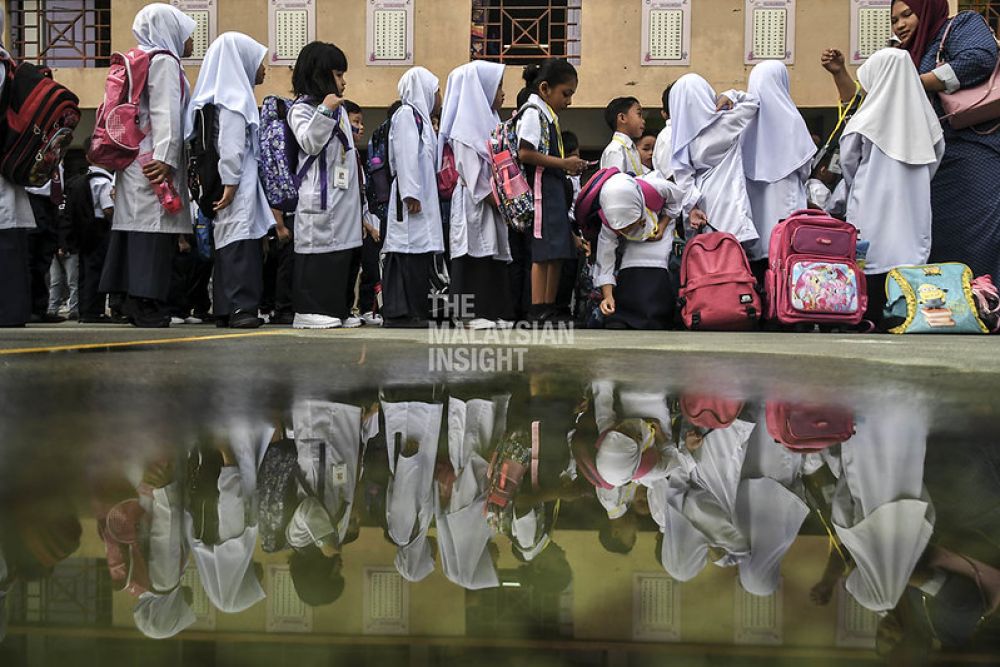THE Health Ministry has received a Budget 2025 allocation of RM45.27 billion, the second highest after the RM64.1 billion granted to the Education Ministry. Prime Minister Anwar Ibrahim, in his speech, urged the ministry to address the poor condition of public hospital facilities, including public toilets.
The budget also increases the on-call allowance for public service doctors from RM55 to RM65 per hour, addressing a long-standing request from healthcare personnel.
Galen Centre for Health and Social Policy chief executive Azrul Mohd Khalib said the bigger health allocation, which is 9.9% more than in 2024, reflects consolidation and investment in key areas, particularly human resources. He highlighted that the ministry will have RM38.53 billion for operating expenses and RM6.74 billion for development.
“It is clear that the government is making a serious effort to recruit, retain and invest in its skilled healthcare workers, including nurses, doctors, and pharmacists. Many are leaving for the private sector, other countries, or leaving the health sector altogether for other jobs,” Azrul said.
He welcomed Anwar‘s announcement of increased tax relief for those making health and education insurance premium payments up to RM4,000.
“Health insurance has changed significantly of late with plans moving towards higher premiums and copayments. The RM10,000 individual tax relief for medical expenditure is equally welcomed, particularly for those caring for or living with chronic and rare diseases,” he said.
However, Azrul expressed concerns about gaps in the government’s efforts. He said that while rare diseases and rheumatoid arthritis have been added to the mySalam Health Protection Scheme, there is uncertainty over the scheme’s future beyond 2025.
“If mySalam ends next year, the newly announced benefits will be limited,” he said.
Azrul called for greater investment in health education, preventive interventions, and healthy breakfast programmes for schoolchildren.
“We need to invest more in these areas if we are seriously committed to moving from sick care to healthcare,” he said.
He urged the government to allocate funds from government-linked investment companies to modernise the ministry’s health information systems, such as electronic medical records. He also highlighted the lack of clarity on how higher-income individuals would be required to pay more or receive fewer subsidies for public healthcare services.
“We continue to recommend that the best way forward is to introduce national health and social insurance. The pooling of funds will go towards investing in both health and aged care. It will complement the existing annual budgetary allocation, and not replace it,” Azrul added.
SMEs will suffer
Small- and medium-sized enterprises (SMEs) expressed concerns over the proposed increase in the national minimum wage from RM1,500 to RM1,700, effective February. Small and Medium Enterprises Association of Malaysia president William Ngwarned that the timing of this increase would disrupt SME operations, especially given the current compressed margins.
“SMEs in Sabah and Sarawak, in particular, will find it difficult to implement the new minimum wage, and we can expect substantial job loss as a result,” Ng said.
He said this would disproportionately affect the B40 income group, many of whom rely on semi-skilled work.
“We urge the government to refine the minimum wage to allow less developed states to maintain the current minimum wage or do away with it altogether,” he added.
Ng said median wages in urban centres such as the Klang Valley, southern Johor, and Penang are already much higher than RM1,700, which could lead to wage compression for the M40 income group, with foreign workers likely to benefit the most.
The Khazanah Research Institute (KRI) praised the government’s move, saying the wage increase and the establishment of a wage guide across all sectors are necessary steps for sustainable and equitable progress.
Helping the people
KRI said the RON95 subsidy rationalisation will generate savings that can be directed towards strengthening health, education, and social welfare sectors. The expansion of the Sumbangan Tunai Rahmah to RM13 billion, along with targeted assistance, is well-positioned to help the people manage the effects of subsidy rationalisation, it said.
KRI said the introduction of a carbon tax on energy in 2026 is potentially more effective than carbon markets in cutting carbon emissions.
“However, its impact on cost of living and industry competitiveness will depend largely on the level of taxation,” KRI said.
It welcomed the continued focus on technical and vocational education and training, particularly its expansion into critical sectors such as semiconductors, robotics, and AI.
“Targeting the urban poor, rural communities, and indigenous youth will prepare our most vulnerable to thrive in an ever-evolving economy,” it said.
Stimulating the economy
Bursa Malaysia chairman Abdul Wahid Omar commended Budget 2025 for stimulating economic activity while strengthening the nation’s financial position. The budget aims to reduce the fiscal deficit from 4.3% of GDP in 2024 to 3.8% in 2025.
Wahid said the introduction of a 2% tax on dividend income exceeding RM100,000 and the expansion of the SST coverage would progressively increase tax revenue.
“This can be channelled into developmental areas, helping maintain Malaysia’s fiscal position,” he said.
He also commended the budget’s emphasis on environmental and social action, noting the planned carbon tax on the steel and energy industries in 2026.
“This is a significant step towards reducing our country’s carbon footprint,” he said.
Wahid pointed to the RM300 million allocation to the National Energy Transition Facilitation Fund and the RM1 billion for the Green Technology Financing Scheme, which will accelerate the country’s renewable energy agenda. He also welcomed the RM250 million allocated to the Ecological Fiscal Transfer for biodiversity conservation.
“These initiatives reflect a strong commitment to sustainable development, focusing on a low-carbon economy, renewable energy, and environmental protection,” he added. – October 19, 2024.






